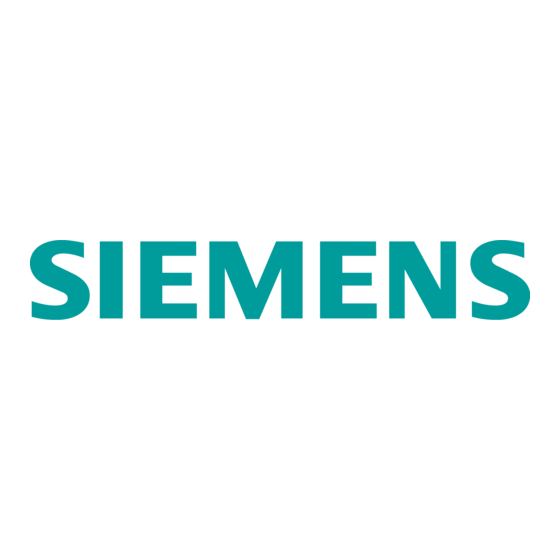Siemens CM724G1B1 Gebruikershandleiding en installatie-instructies - Pagina 10
Blader online of download pdf Gebruikershandleiding en installatie-instructies voor {categorie_naam} Siemens CM724G1B1. Siemens CM724G1B1 44 pagina's.

en Operating modes
5.1 Types of heating
To ensure that you always find the right type of heating
to cook your food, we explain the differences and ap-
plications below.
The symbols for each type of heating help you to re-
member them.
Symbol Type of heating
2D hot air
Bottom heating
Top/bottom heating
Top/bottom heating
gentle
Grill, large area
Grill, small area
Hot air gentle
Circulated air grilling
Preheating cookware
5.2 Temperature
With most types of heating , you can read the current
temperature in the cooking compartment and the set
temperature side-by-side on the display during heating,
e.g. 120 °C|210 °C.
When you preheat the appliance, the optimal time to
place the meal in the oven is as soon as the heating
line has completely filled and a signal tone sounds.
5.3 Microwave output settings
This is where you can find an overview of the different microwave output settings and when to use them.
The microwave output settings are levels and do not always correspond to the exact wattage that the appliance uses.
Microwave output in
watts
90 W
180 W
10
Temperature
range
30 - 230 °C
30 - 230 °C
30 - 230 °C
30 - 230 °C
Fixed grill set-
ting
Fixed grill set-
ting
30 - 230 °C
30 - 230 °C
30 - 90 °C
Maximum cooking
time in hours
1:30
1:30
When you select a type of heating, the appliance sug-
gests a suitable temperature or setting. You can use
these values or change them within the specified
range.
What it's used for and how it works
Possible additional functions
Bake or roast on one level.
The fan in the back panel of the oven distributes the heat evenly
throughout the cooking compartment.
Final baking or cooking food in a bain marie.
The heat is emitted from below.
Traditionally bake or roast on one level. This type of heating is
especially good for cakes with moist toppings.
The heat is emitted evenly from above and below.
Gently cook selected dishes.
The heat is emitted from above and below.
This type of heating is most effective above 150 °C.
This type of heating is used to measure the energy consumption
in the conventional mode.
Grill flat items such as steak and sausages, or make toast. Grat-
inate food.
The entire area below the grill element becomes hot.
Grill small quantities, such as sausages, or make toast. Gratinate
small quantities of food.
The central area below the grill element becomes hot.
Cook selected dishes gently on one level without preheating.
The fan distributes the heat evenly throughout the cooking com-
partment. The food is cooked in phases using residual heat.
This type of heating is most effective between 125 and 230 °C.
Always keep the appliance door closed when cooking.
This type of heating is used to determine the energy consump-
tion in air recirculation mode and the energy efficiency class.
Roast poultry, whole fish or larger pieces of meat.
The grill element and the fan switch on and off alternately. The
fan circulates the hot air around the food.
Preheat cookware.
Note: Due to thermal inertia, the temperature that is
displayed may differ slightly from the actual temperat-
ure inside the cooking compartment.
Residual heat indicator
When the appliance is switched off, the display uses
the
symbol to show the residual heat in the cooking
compartment. The further the temperature drops, the
less the symbol is visible. The symbol goes out entirely
at approx. 60 °C.
Use
Defrost delicate foods.
Defrost food and continue cooking.
